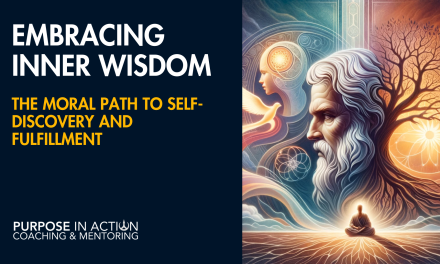
Introduciton
In an era defined by shifting societal expectations, evolving relationships dynamics, and the ever-present quest for personal and professional fulfillment, many men find themselves seeking guidance. As the traditional archetypes of masculinity undergo transformation, life coaching emerges as a powerful tool to help men navigate this complex terrain. Here’s how life coaching is crafting better, more self-aware, and emotionally intelligent men.
1. Redefining Masculinity
Traditionally, men have been conditioned to suppress their emotions, viewing vulnerability as a sign of weakness. Life coaching challenges these notions, encouraging men to explore and embrace their feelings. This leads to a more authentic expression of self, fostering genuine connections with others and a deeper understanding of one’s own emotions.
2. Building Emotional Intelligence
By working with a life coach, men are taught to recognise, comprehend, and manage their emotions. This emotional intelligence is invaluable, not just in personal relationships but also in professional settings, enabling better decision-making, communication, and leadership.
3. Goal Setting & Achievement
Many men find themselves adrift, unsure of their purpose or the direction they should take in life. Life coaches aid in the process of goal-setting, offering clarity and a structured path forward. By achieving these set goals, men experience a sense of accomplishment and self-worth.
Would you like to design Your Purpose Roadmap?
If you’re ready to leave the frustration and confusion behind, book in your free call and I’ll take you through the process of designing a Purpose Roadmap for your life, that you can start applying immediately.
WATCH THE PRESENTATION
4. Enhancing Relationships
A significant part of life coaching focuses on interpersonal relationships. Coaches equip men with the tools to communicate more effectively, express their needs, and understand those of their partners, children, and colleagues. This leads to healthier, more fulfilling relationships.
5. Support Through Transitions
Major life changes, such as career shifts, the end of relationships, or the onset of fatherhood, can be daunting. Life coaching offers guidance during these transitions, ensuring that men emerge from them stronger, more adaptable, and with a clearer sense of self.
6. Empowerment & Self-belief
A life coach serves as a constant pillar of support, instilling confidence and fostering self-belief. By addressing self-doubt, fears, and limiting beliefs, men are empowered to take proactive steps in their lives, breaking free from self-imposed limitations.
7. Work-life Balance
In a world where burnout is rife, achieving a work-life balance is more critical than ever. Life coaches help men prioritise their well-being, ensuring they strike a balance between their professional ambitions and personal life.
8. Enhancing Self-awareness
Life coaching encourages introspection. By delving deep into one’s motivations, desires, and fears, men gain a heightened self-awareness, allowing them to align their actions with their core values.
9. Addressing Mental Health
While life coaches are not therapists, they do play a pivotal role in promoting mental well-being. By providing a safe space for men to express their anxieties and concerns, coaches can often be the first step in addressing deeper mental health issues.
10. Fostering Community & Brotherhood
Life coaches often introduce men to networks and communities where they can connect with like-minded individuals. These bonds of brotherhood can serve as valuable support systems, reinforcing the lessons learned during coaching sessions.
In conclusion, life coaching isn’t just about guiding men through challenges; it’s about reimagining what it means to be a man in today’s world. By promoting emotional intelligence, self-awareness, and resilience, life coaching is undeniably crafting better men, ready to lead, love, and thrive in the 21st century.





